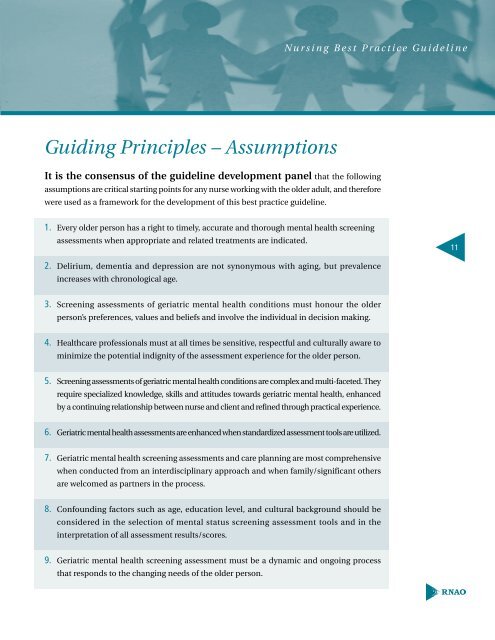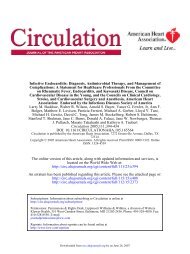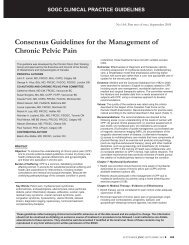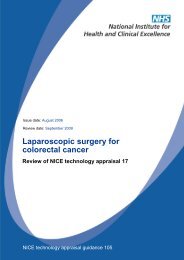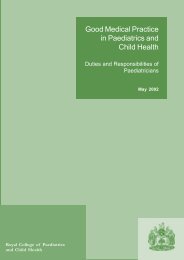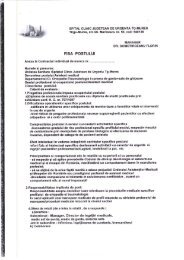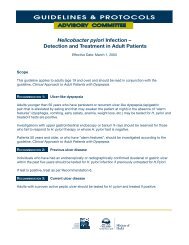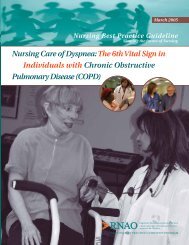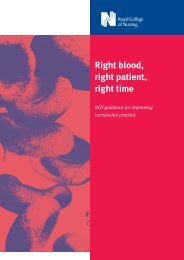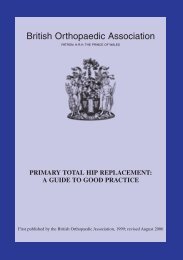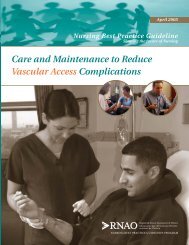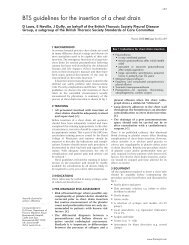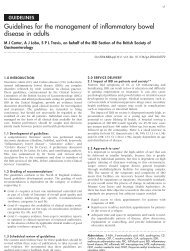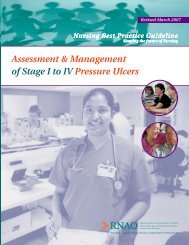Screening for Delirium, Dementia and Depression in Older Adults
Screening for Delirium, Dementia and Depression in Older Adults
Screening for Delirium, Dementia and Depression in Older Adults
- No tags were found...
You also want an ePaper? Increase the reach of your titles
YUMPU automatically turns print PDFs into web optimized ePapers that Google loves.
Nurs<strong>in</strong>g Best Practice Guidel<strong>in</strong>eGuid<strong>in</strong>g Pr<strong>in</strong>ciples – AssumptionsIt is the consensus of the guidel<strong>in</strong>e development panel that the follow<strong>in</strong>gassumptions are critical start<strong>in</strong>g po<strong>in</strong>ts <strong>for</strong> any nurse work<strong>in</strong>g with the older adult, <strong>and</strong> there<strong>for</strong>ewere used as a framework <strong>for</strong> the development of this best practice guidel<strong>in</strong>e.1. Every older person has a right to timely, accurate <strong>and</strong> thorough mental health screen<strong>in</strong>gassessments when appropriate <strong>and</strong> related treatments are <strong>in</strong>dicated.112. <strong>Delirium</strong>, dementia <strong>and</strong> depression are not synonymous with ag<strong>in</strong>g, but prevalence<strong>in</strong>creases with chronological age.3. <strong>Screen<strong>in</strong>g</strong> assessments of geriatric mental health conditions must honour the olderperson’s preferences, values <strong>and</strong> beliefs <strong>and</strong> <strong>in</strong>volve the <strong>in</strong>dividual <strong>in</strong> decision mak<strong>in</strong>g.4. Healthcare professionals must at all times be sensitive, respectful <strong>and</strong> culturally aware tom<strong>in</strong>imize the potential <strong>in</strong>dignity of the assessment experience <strong>for</strong> the older person.5. <strong>Screen<strong>in</strong>g</strong> assessments of geriatric mental health conditions are complex <strong>and</strong> multi-faceted. Theyrequire specialized knowledge, skills <strong>and</strong> attitudes towards geriatric mental health, enhancedby a cont<strong>in</strong>u<strong>in</strong>g relationship between nurse <strong>and</strong> client <strong>and</strong> ref<strong>in</strong>ed through practical experience.6. Geriatric mental health assessments are enhanced when st<strong>and</strong>ardized assessment tools are utilized.7. Geriatric mental health screen<strong>in</strong>g assessments <strong>and</strong> care plann<strong>in</strong>g are most comprehensivewhen conducted from an <strong>in</strong>terdiscipl<strong>in</strong>ary approach <strong>and</strong> when family/significant othersare welcomed as partners <strong>in</strong> the process.8. Confound<strong>in</strong>g factors such as age, education level, <strong>and</strong> cultural background should beconsidered <strong>in</strong> the selection of mental status screen<strong>in</strong>g assessment tools <strong>and</strong> <strong>in</strong> the<strong>in</strong>terpretation of all assessment results/scores.9. Geriatric mental health screen<strong>in</strong>g assessment must be a dynamic <strong>and</strong> ongo<strong>in</strong>g processthat responds to the chang<strong>in</strong>g needs of the older person.


